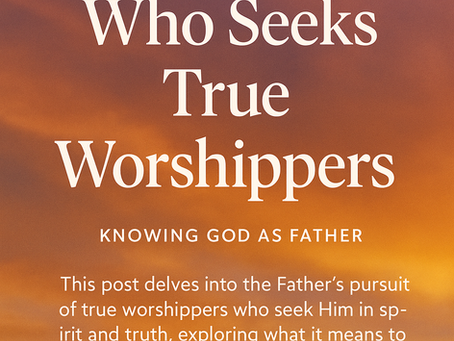top of page
Lighthouse Fellowship Reformed Church
Search
All Posts


Gospel Obedience by the Spirit (Chapter 19, Paragraph 9)
Paragraph 9 of Chapter 19 closes the discussion of God’s law by asserting that true obedience springs not from servile fear but from the regenerating power of the Holy Spirit. While believers are no longer justified by the law, they are enabled by grace to keep it more and more. The law no longer threatens but instructs. Far from being abolished, the law is now written on the hearts of God’s people, who obey out of love and reverence.
Oct 24, 20254 min read


October 23 – Theodore Beza: Guardian of Calvin’s Legacy
When John Calvin died in 1564, many wondered what would become of the Reformation in Geneva. Would the movement falter without its great theologian and pastor? Into this moment stepped Theodore Beza, Calvin’s trusted friend and successor. Beza’s long life and faithful ministry ensured that Calvin’s legacy not only endured but also expanded across Europe.
Oct 23, 20253 min read
The Father’s Pleasure in Our Praise
God does not need our praise—He delights in it. Scripture reveals that when His children worship in spirit and truth, the Father receives it with joy. This post explores how genuine praise is rooted in a redeemed heart, shaped by Christ’s work, and fueled by the Spirit. It unpacks the biblical truth that our praise brings pleasure to God because it reflects His glory back to Him.
Oct 23, 20252 min read


The Unchanging Moral Law (Chapter 19, Paragraph 8)
Paragraph 8 of the 1689 Confession asserts the perpetual authority of God’s moral law. Though ceremonial and judicial laws have ceased, the moral law—summarized in the Ten Commandments—remains binding on all people in every generation. The moral law is not merely an Old Testament relic but a reflection of God's holy character and an abiding rule of life. For Christians, obedience to the law is not for justification but a fruit of union with Christ.
Oct 23, 20253 min read


October 22 – John Calvin: The Theologian of God’s Glory
If Martin Luther lit the fire of the Reformation, John Calvin gave it structure and depth. A French theologian, pastor, and writer, Calvin devoted his life to proclaiming the sovereignty of God, the sufficiency of Scripture, and the supremacy of Christ. His writings and ministry in Geneva made him one of the most influential figures in church history, shaping not only the sixteenth century but also the centuries that followed.
Oct 22, 20253 min read


Ceremonial and Judicial Laws Fulfilled in Christ (Chapter 19, Paragraph 7)
Paragraph 7 clarifies the distinct categories of law given to Israel—moral, ceremonial, and judicial. While the moral law is universal and perpetual, the ceremonial and judicial laws were given specifically to the nation of Israel under the old covenant. These laws, though once binding, have now been abrogated under the new covenant because they were fulfilled in Christ. The ceremonial laws pointed forward to Jesus, and the judicial laws governed Israel as a theocratic nation
Oct 22, 20254 min read


The Father’s Joy in the Gospel’s Spread
The Father is not a reluctant Redeemer—He delights in the spread of the Gospel. This post explores how the proclamation of Christ brings joy to the heart of the Father, fuels heaven’s celebration, and advances the eternal plan to glorify His name among all nations.
Oct 22, 20253 min read


October 21 – Farel’s Geneva Mission: Preparing a City for Reformation
The Reformation spread not only through individuals but also through entire cities that embraced the gospel. One of the most strategic centers of reform was Geneva, Switzerland. Before it became famous as John Calvin’s base, it was first shaken and transformed by the fiery preaching of Guillaume Farel. His mission in Geneva during the 1530s prepared the soil for Calvin’s later ministry and turned the city into a beacon of Protestant faith.
Oct 21, 20253 min read


The Harmony of Law and Gospel (Chapter 19, Paragraph 6)
This paragraph affirms the harmony between the law and the gospel, clarifying that they are not enemies but serve complementary roles in God’s redemptive plan. The moral law does not oppose grace; instead, it reveals the holiness and justice of God, preparing the heart for the gospel and guiding believers in sanctified living. The law is not abolished in the gospel but fulfilled by Christ, who empowers His people to walk in righteousness. Grace does not license sin but teache
Oct 21, 20253 min read


The Father’s Work Through Ordinary Means
The Father is not limited to miracles—He works powerfully through the ordinary. This post explores how God consistently uses common rhythms, people, and processes to accomplish His will, strengthen His church, and glorify His name in everyday life.
Oct 21, 20253 min read


October 20 – Guillaume Farel: The Fiery Evangelist of Geneva
The Reformation spread across Europe through the work of men with very different personalities. Some were scholars, others pastors, and still others evangelists whose bold preaching ignited whole cities. Guillaume Farel, the French reformer of Geneva, belonged to the latter category. Known for his fiery zeal and fearless proclamation, Farel prepared the way for John Calvin and helped establish Geneva as a stronghold of the Reformation.
Oct 20, 20253 min read


The Threefold Use of the Law (Chapter 19, Paragraph 5)
Paragraph 5 teaches the purposes of God's moral law, explaining its value for both the unregenerate and the redeemed. For unbelievers, the law exposes sin, restrains evil, and reveals the desperate need for Christ. For believers, the law does not justify but reveals God’s will, convicts of remaining sin, and guides toward holiness. The law drives sinners to Christ and leads saints in sanctification.
Oct 20, 20254 min read


The Father’s Protection from the Evil One
God the Father: Knowing the First Person of the Trinity The World Is Hostile—But the Father Is Strong John 17:15: “I do not ask that You...
Oct 20, 20253 min read


October 19 – Johannes Oecolampadius: The Quiet Reformer of Basel
The Protestant Reformation is often remembered for its bold voices—Luther’s thunder, Zwingli’s fire, Calvin’s clarity. But behind these more famous figures stood quieter servants whose steady work helped anchor the movement. One such man was Johannes Oecolampadius, the reformer of Basel. Known for his humility, scholarship, and devotion to the Word of God, Oecolampadius provided critical leadership in Switzerland during the formative years of reform.
Oct 19, 20253 min read


The Father’s Role in Sending the Church
God the Father: Knowing the First Person of the Trinity The Church Exists Because the Father Sent the Son John 3:17: “For God did not...
Oct 19, 20253 min read


The Moral Law Still Binding (Chapter 19, Paragraph 4)
Paragraph 4 of Chapter 19 asserts that the moral law of God continues to bind all people, believers and unbelievers alike. Though fulfilled in Christ, the moral law is not abolished. Rather, it remains a standard of righteousness, convicting sinners and guiding saints. This law does not justify the sinner, nor condemn the believer, but functions to restrain evil, reveal sin, and shape holy living. Christ’s fulfillment of the law affirms its goodness and permanence.
Oct 19, 20253 min read


October 18 – Martin Bucer: The Reformer of Strasbourg
Among the Reformers of the sixteenth century, Martin Bucer is sometimes less well-known than Luther, Zwingli, or Calvin. Yet his ministry in Strasbourg made him one of the most important bridge-builders of the Reformation. A tireless pastor, mediator, and theologian, Bucer worked to bring unity among Protestants and to shape reform in both church and society. His influence reached far beyond his city, leaving a legacy that touched Luther, Calvin, and even the Church of Englan
Oct 18, 20253 min read


The Father’s Patience in Our Growth
God the Father: Knowing the First Person of the Trinity The Father Is Patient by Nature Exodus 34:6: “The Lord, the Lord, a God merciful...
Oct 18, 20252 min read


The Moral Law Given at Sinai (Chapter 19, Paragraph 3)
This paragraph teaches that the moral law, which was first written on the heart of man in creation, was later delivered more fully and clearly at Mount Sinai. God gave Israel the Ten Commandments as a covenantal summary of His moral expectations. Though delivered to a specific people in a particular time, these commandments are universal and enduring because they reflect God’s unchanging character.
Oct 18, 20253 min read


October 17 – Ulrich Zwingli: The Swiss Shepherd of Reform
When people think of the Reformation, Martin Luther usually comes first to mind. Yet at the same time in Switzerland, another man was preaching Christ and calling the church back to Scripture. His name was Ulrich Zwingli, and though less celebrated than Luther or Calvin, he played a vital role in shaping the Reformation. A pastor at heart, Zwingli’s ministry emphasized preaching, purity of worship, and the sufficiency of Christ.
Oct 17, 20253 min read
bottom of page